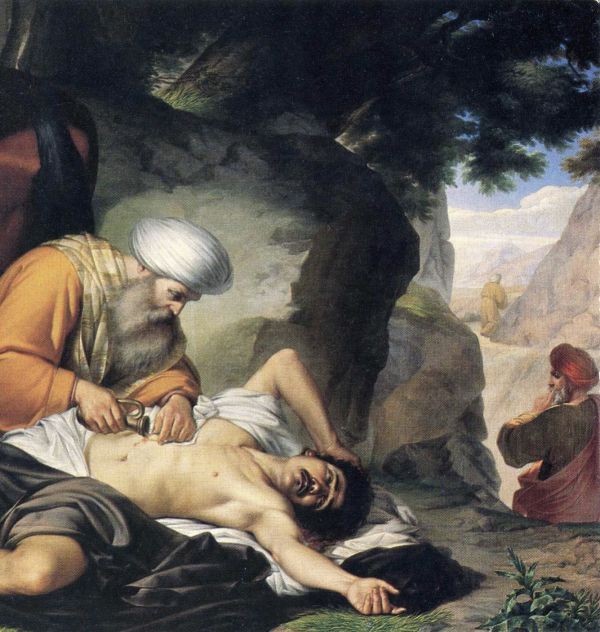In today's Gospel according to Luke, Jesus responds to the question, «Who is to me neighbour?» (Lk 10:29) by telling a story.
When faced with someone lying on the ground, we must not pass by, but rather help them and take care of them, because every person who has been mistreated is our neighbour, whoever they may be.
The Little Poor, who had received mercy from the Lord, had learned the lesson well and applied it "sine glossa", literally to everyone, beginning with the most needy and marginalised of his time.
The Poverello's encounter with the lepers is a fundamental page in his life. It is a crossroads that profoundly changes him and alters the coordinates of his inner life.
He felt compassion and "passion" for them, willing to help them in every way, because they were the treasure chest of the Suffering Servant.
We read in his wonderful Testament:
"The Lord gave me, Brother Francis, to begin to do penance in this way: when I was in sins, it seemed too bitter for me to see lepers; and the Lord himself led me among them and I showed mercy to them. And when I left them, what seemed bitter to me was changed into sweetness of soul and body" (FF 110).
Thus, "the Saint went among the lepers and lived with them, serving them in every need for the love of God. He washed their decaying bodies and cared for their festering wounds [...]
The sight of lepers, in fact, as he himself attests, was so unbearable to him that as soon as he saw their shelter two miles away, he would cover his nose with his hands.
But this is what happened: at the time when, through the grace and virtue of the Most High, he had already begun to have holy and salutary thoughts while still living in the world, one day a leper appeared before him. He forced himself to approach him and kissed him.
From that moment on, he decided to despise himself more and more, until, through the mercy of the Redeemer, he obtained complete victory" (FF 348).
And Francis healed many lepers:
"In the city of Fano, a young man named Bonomo, considered by all doctors to be a leper and paralytic, as soon as he was offered very devoutly by his parents to Blessed Francis, was freed from leprosy and paralysis and regained full health" (FF 564).
The care he gave to lepers, like the Good Samaritan of the Gospel, was transformed, by the gift of the Lord, into power and effectiveness in healing the diseases of the body and spirit.
He had a deep compassion for these souls abandoned to themselves and lived the Gospel of the destitute and marginalised to the letter, loving with extraordinary predilection the Lazaruses of his time and beyond.
«Go, you too do it the same» (Lk 10:37)
Sunday of the 15th wk. in Ordinary Time, year C (Lk 10:25-37)












